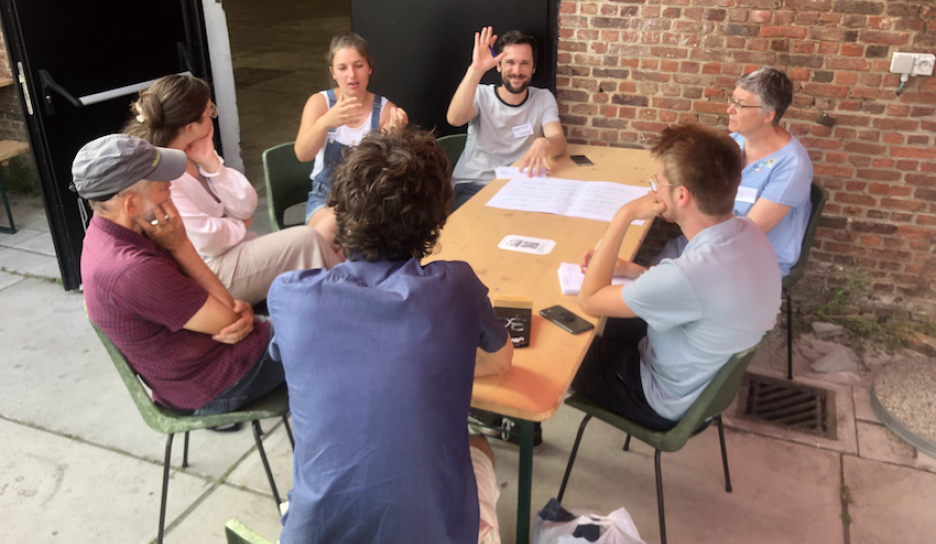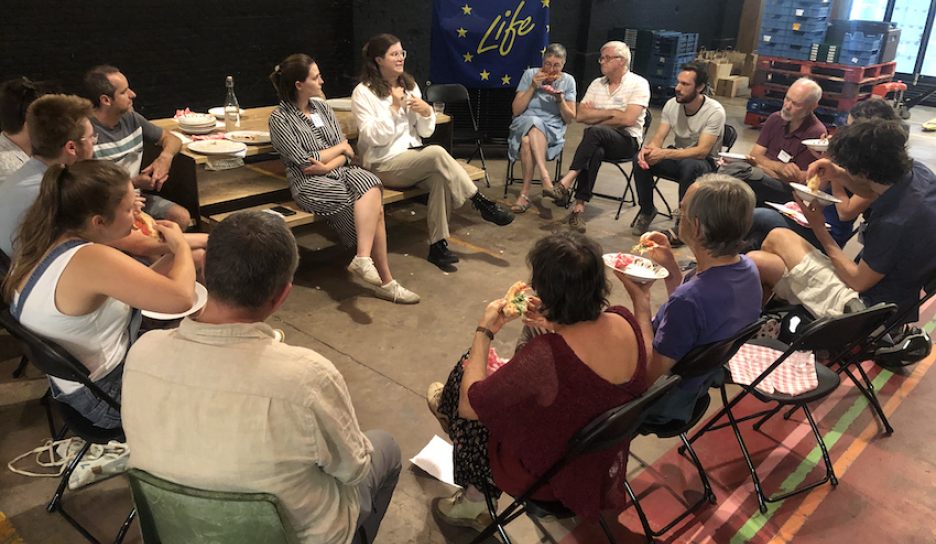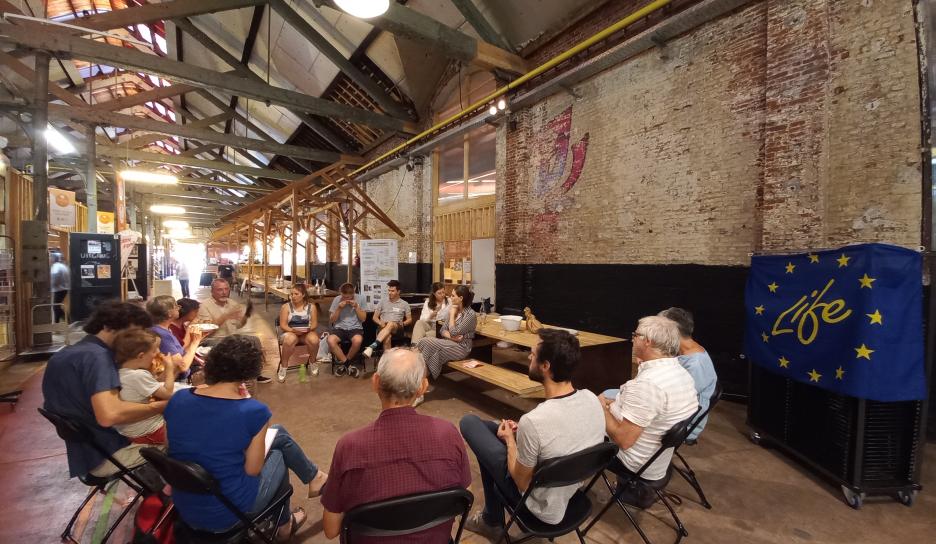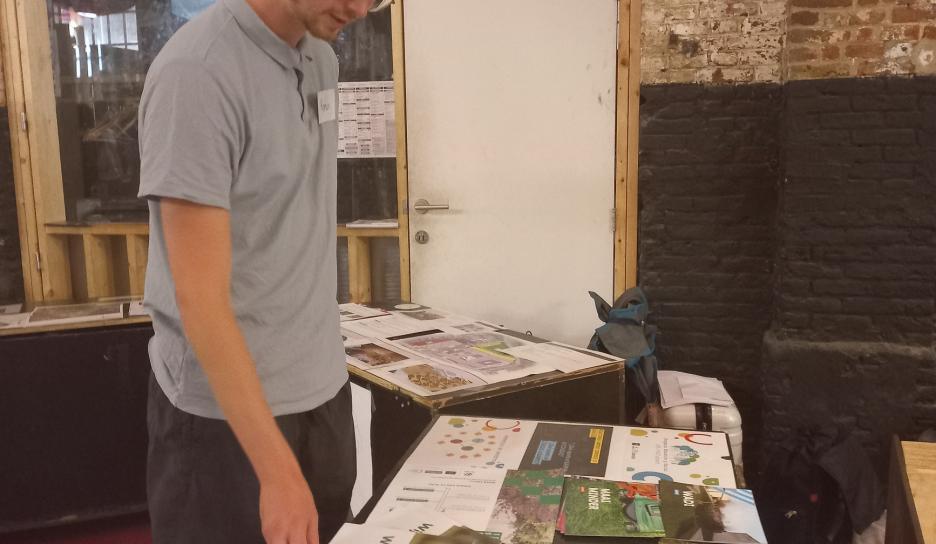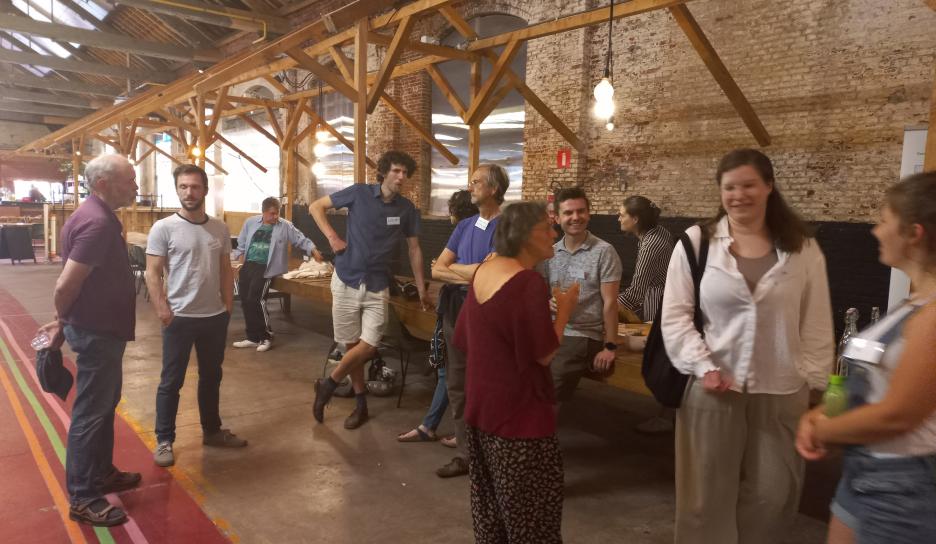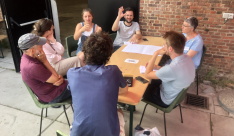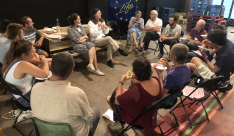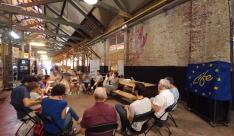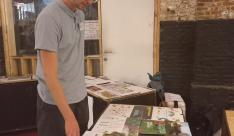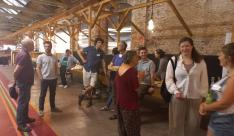Hub on the Road Leuven
The Hub went ‘on the road’ to Leuven from 21-23 June 2022, running two activities: one-on-one interviews, and a drop-in event.
One-on-one interviews
Over two days the Hub interviewed seven people: garden ranger, project expert on sustainable education, architect, academics in sustainability and bioscience engineering, and civil servants in sustainability, landscape architecture and nature-based solutions.
The goal was to speak to actors outside the project partner group to broaden and exchange ideas on nature-based solutions and community-focused needs. We also used these sessions to test the ‘Replication Model’ in progress, to see what is making sense and where there’s gaps.
Drop-in event
On a third evening we co-hosted an informal 'drop-in' with the City of Leuven at HAL5, a repurposed space for urban sustainability. 12 people came along including garden rangers, civil servants in participation, climate action volunteers, repair cafe volunteers, network builders, and therapeutic garden designers.
Across the interviews and the informal drop-in a range of topics were discussed, including:
- Relationships forming the basis for action; word-of-mouth builds project enthusiasm;
- The need for good ‘trekkers’ and leaders, and open, active welcoming networks;
- Finding individuals, or small groups that are enthusiastic, and helping them grow;
- Physical locations making it easier to attract new volunteers;
- Making it a child and family friendly space for more age-based diversity;
- Learn about the needs of target groups first when starting a new group;
- City to ‘support and get out of the way’; desire for more community agency;
- Cheap or free resources from City for initiatives to use e.g. tools, excavators;
- The need for a stronger connection between the city and citizens, for better support and coordination, and guidance through complex procedures to reduce burden;
- The need to do more to engage marginalised groups e.g. people experiencing poverty, the elderly, and people experiencing language barriers.
- When communicating about climate action frame things in relatable, needs-based ways e.g. “reduce your energy bill” not “reduce your carbon emissions”.


